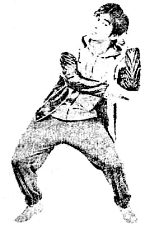题目内容
It is uncertain ________ side effect the medicine will bring about, although about two thousand patients have taken it.
A. that B. what C. now D. whether
D
【解析】
试题分析:考查主语从句。句意:尽管已经有约两千人服用过,但这种药物是否会产生副作用还不确定。it是形式主语,uncertain后面的从句是真正的主语;that引导主语从句时无意义,只起连接作用;what作主语或宾语;whether意为“是否”,根据句意可知,这里是“是否”的意思,故选D。
考点:考查主语从句

练习册系列答案
相关题目
